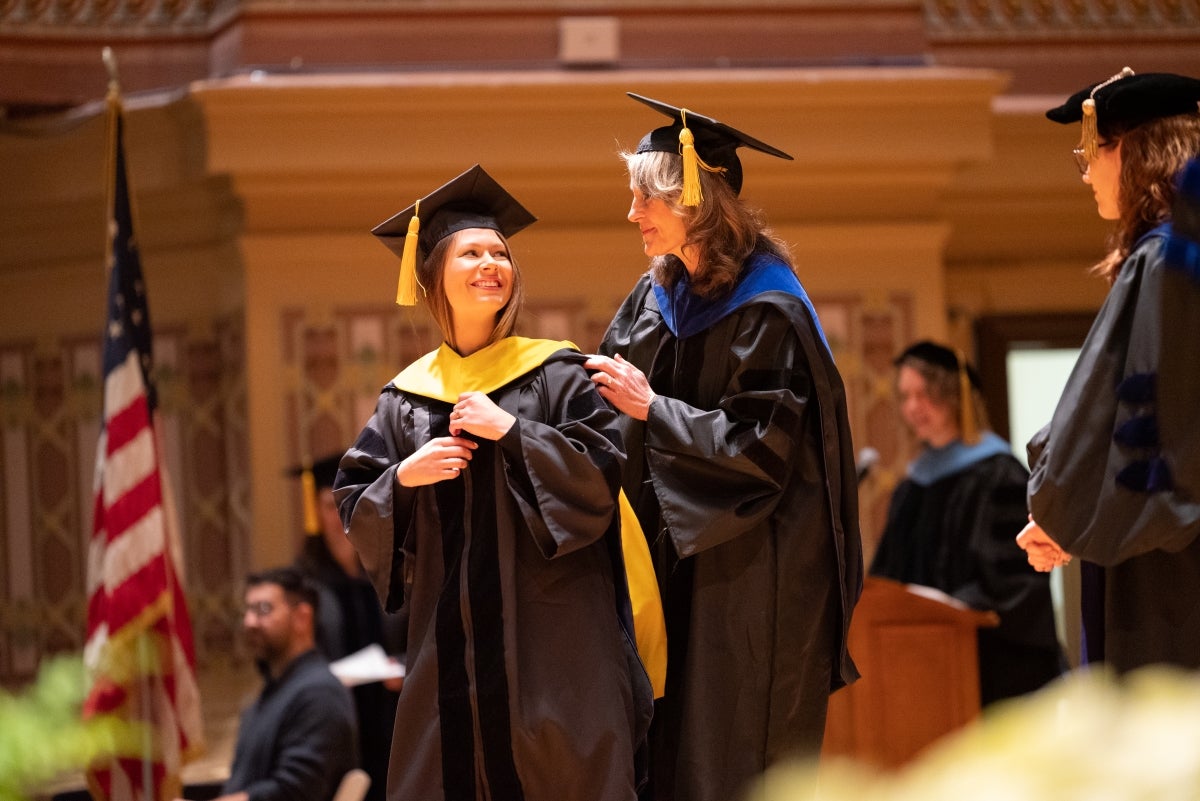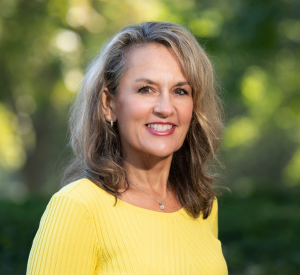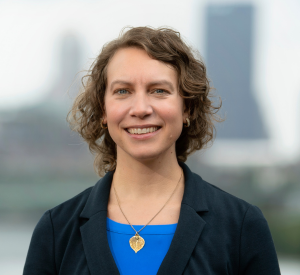There’s something in the DNA of occupational therapists that propels them to seek out ways to implement positive change.
According to Juleen Rodakowski, associate professor and chair, Department of Occupational Therapy (OT), occupational therapists often seek ways to improve the lives of their clients. This desire spurs practitioners to wonder how to best deliver interventions and support their clients—or even how the use of evidence can influence the OT profession as a whole.
“We saw a need to create a post-professional program that empowers our practitioners to take the next step, to become clinical leaders in the field of OT,” says Rodakowski.
“Our first cohort of students came from different areas of the country and different professional experiences but they shared one thing—a passion for making our profession better!”
– Juleen Rodakowski
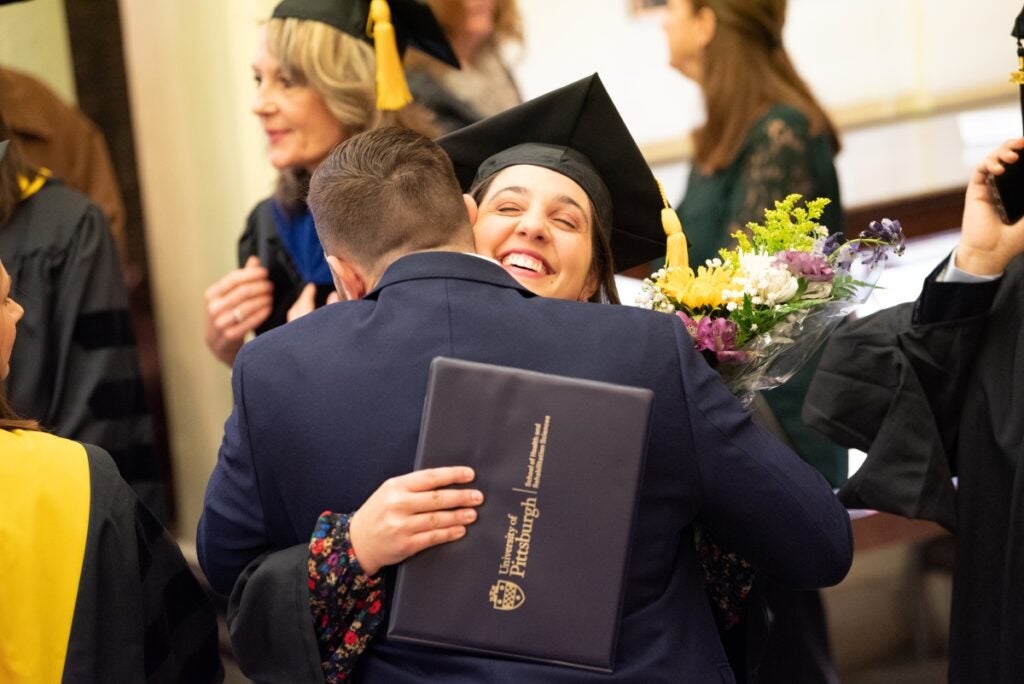
“Although we’ve had a highly successful in-person Doctor of Occupational Therapy (OTD) program since 2015, we understood that practicing clinicians would not be able to pause their careers in order to advance their education,” continues OT Professor and Program Director Pamela E. Toto.
That’s how the 100% online Doctor of Clinical Science (CScD) in Occupational Therapy was born.
The CScD is designed for practitioners who are ready to pursue a clinical doctorate. Using a combination of asynchronous and synchronous learning, students view short lectures and videos and complete readings on their own time, then meet virtually with faculty and members of their cohort one evening per week.
Toto says the faculty worked with instructional designers to ensure the students have the best possible experience. All online modules are designed in the same manner, so there’s a very short learning curve for students. They can quickly get into the content of the coursework without stressing over how to manage the technical aspect of online learning.
Implementing Evidence
Because students in the CScD program are already experienced clinicians, the curriculum focuses on developing advanced leadership and skill in implementing best evidence into everyday practice. It is highly personalized, based on the students’ professional interests and goals.
Over the course of the program, students learn how to identify a need, interpret evidence, engage with stakeholders, influence change and implement their strategies.
After completing 34 online credits, students undertake an eight-credit independent capstone project that demonstrates their advanced knowledge for implementing evidence into practice. They present their results at a semi-annual colloquium which is attended virtually by as many as 300 practicing occupational therapists.
“Most research and evidence in the field of OT doesn’t get translated into practice,” notes Toto. “This has nothing to do with the quality of the research, but more so with barriers related to not knowing how to adapt it for a specific context and the resistance of some individuals or the structure of some organizations—to accept change. It can be frustrating for clinicians.”
“In the CScD program, we arm our students with the skills and tools they need to break down barriers and become agents of change,” continues Toto. Built into the clinical doctorate degree is a 12-credit Advanced Practice Certificate in Implementation of Evidence in Clinical Practice.
“Ours is the only post-professional doctorate that’s anchored in implementation and knowledge translation—taking evidence and translating it into practice.”
– Pamela Toto
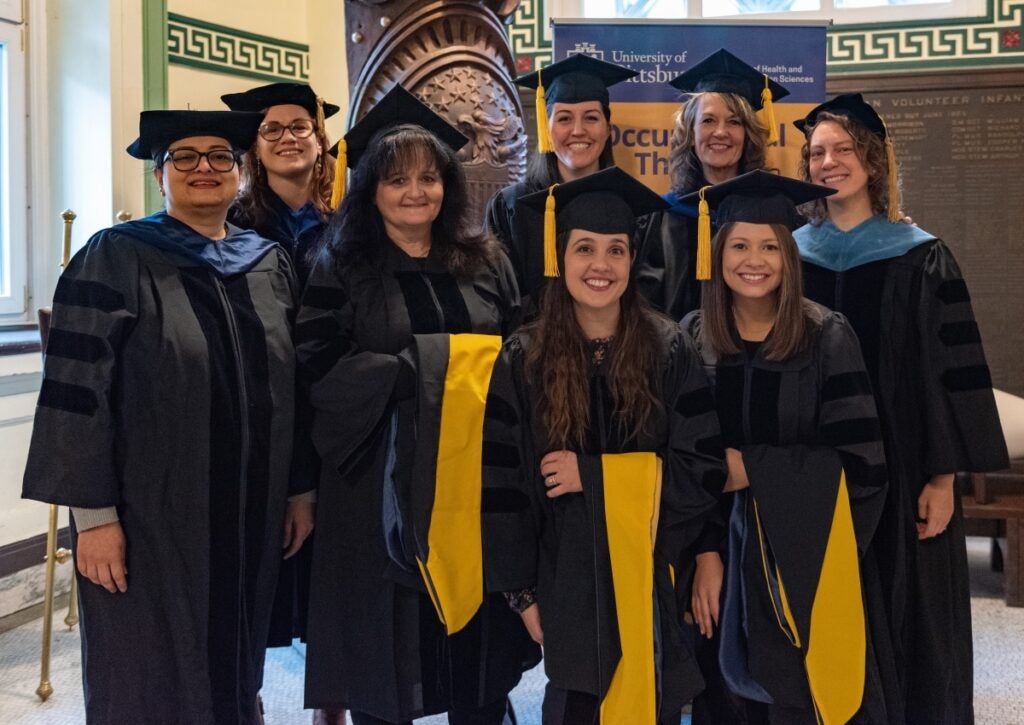
Graduate Testimonials
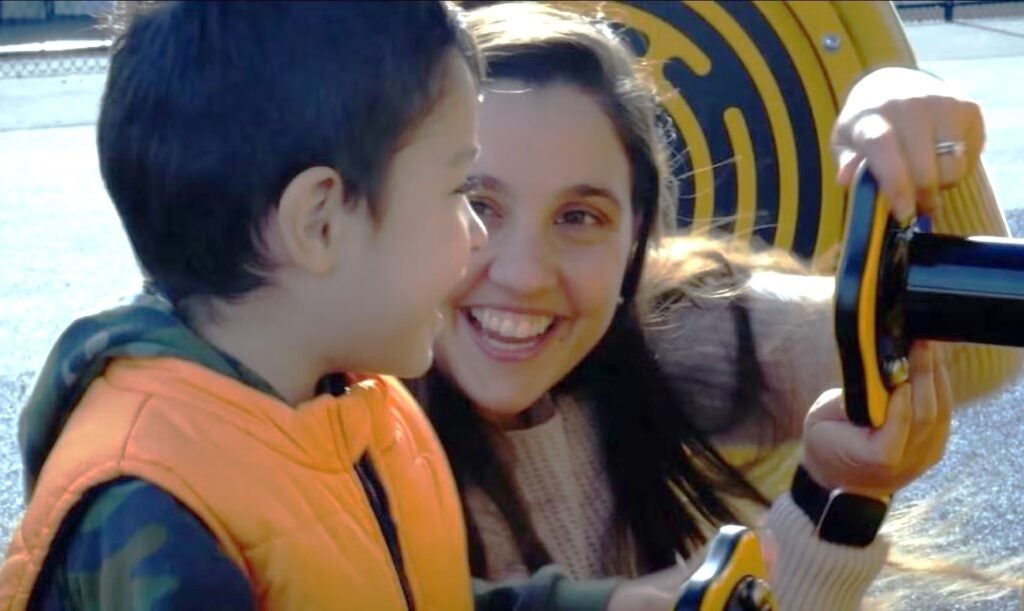
Members of the first graduating cohort have high praises for how the CScD program impacted their lives, both personally and professionally.
“This program gave me the confidence that I could take on a major playground improvement project and improve the lives of the children in our school.”
– Erica Van Eck-Lam (CScD ’22)
Saddle Brook Public Schools
Saddle Brook, New Jersey
“For my capstone project, I was able to implement a collaborative, evidence-based practice group at our workplace and suggest some changes. I explained what I learned in my Theory of Change course and got my supervisor’s buy-in to establish dedicated time to share research with our team.”
– Donna Anderson (CScD ’22)
Occupational Therapist
Northwest Tri-County Intermediate Unit 5
Erie, Pennsylvania
“This program made me passionate about OT all over again. For my capstone, I focused on supporting individuals with physical disabilities who want to engage in commercial air travel. We noticed there was a huge gap when it came to accessibility, so I began looking at ways that we can address the need, even though there was not a lot of evidence right now.”
– Michaella Hayden (CScD ’22)
“By creating groups of stakeholders, we can slowly but surely discover the evidence we need to create huge changes.”
Adjunct Instructor
State University of New York at Buffalo
Buffalo, New York
“I am in a leadership position in my organization, but found I was struggling with moving my work forward. The program showed me the path I needed to take in order to get from Point A to Point B. I was excited to use new tools to provide better evidence-based care to our patients.”
– Kelsey Watters (CScD ’22)
Clinical Practice Leader for Occupational Therapy
Shirley Ryan Ability Lab
Chicago, Illinois
